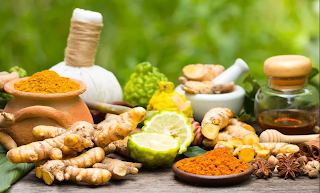Curcumin is a natural compound found in the spice turmeric, which is widely used in traditional Indian cuisine and has been used for centuries in Ayurvedic medicine.
In recent years, curcumin has gained significant attention for its potential health benefits, especially in the prevention and treatment of chronic diseases. This article will explore the crucial role of curcumin in promoting overall health and well-being.
Curcumin is known for its potent anti-inflammatory properties, which have been extensively studied in both in vitro and in vivo models. Inflammation is a crucial response by the body's immune system to fight against infection or injury. However, chronic inflammation is also a significant contributor to the development of various chronic diseases, including cancer, heart disease, diabetes, and neurodegenerative disorders.
Studies have shown that curcumin can inhibit the activation of nuclear factor-kappa B (NF-kB), a key transcription factor that regulates the expression of genes involved in inflammation. By suppressing NF-kB, curcumin helps reduce the production of pro-inflammatory cytokines and enzymes, thereby alleviating chronic inflammation. Furthermore, curcumin also acts as a scavenger of free radicals, protecting cells from oxidative stress and further reducing inflammation.
In addition to its anti-inflammatory effects, curcumin has been shown to possess potent antioxidant properties. Oxidative stress occurs when there is an imbalance between the production of free radicals and the body's ability to neutralize them with antioxidants. Excessive oxidative stress can lead to DNA damage, protein dysfunction, and lipid peroxidation, all of which contribute to the development of chronic diseases.
Curcumin's antioxidant activity arises from its ability to scavenge free radicals and enhance the activity of antioxidant enzymes. It has been shown to increase the production of endogenous antioxidants, such as glutathione, catalase, and superoxide dismutase, which help protect cells from oxidative damage. By reducing oxidative stress, curcumin promotes cellular health and mitigates the risk of chronic diseases.
Moreover, curcumin has been extensively studied for its potential anti-cancer properties. Cancer is characterized by uncontrolled cell growth, invasion, and metastasis. Curcumin exhibits multiple anti-cancer effects by targeting various molecular pathways involved in carcinogenesis.
Studies have shown that curcumin can inhibit the growth and proliferation of cancer cells by inducing apoptosis, a process of programmed cell death. It can also suppress the invasion and metastasis of cancer cells by inhibiting the activity of matrix metalloproteinases (MMPs) and epithelial-mesenchymal transition (EMT), both of which are crucial for cancer cell migration and invasion.
Furthermore, curcumin has been shown to modulate multiple signaling pathways involved in cancer development and progression, such as PI3K/Akt, MAPK, and NF-kB pathways. It can inhibit the activation of oncogenes and promote the expression of tumor suppressor genes, thus exerting anti-cancer effects.
Aside from its anti-inflammatory, antioxidant, and anti-cancer properties, curcumin has also shown promising effects in the prevention and management of metabolic disorders. Metabolic syndrome is a cluster of conditions that include obesity, insulin resistance, dyslipidemia, and high blood pressure, all of which increase the risk of heart disease and type 2 diabetes.
Numerous studies have demonstrated that curcumin can improve insulin sensitivity, reduce blood glucose levels, and normalize lipid profile. It has been shown to activate AMP-activated protein kinase (AMPK), a key regulator of energy metabolism, which enhances glucose uptake and utilization in skeletal muscle and adipose tissue.
Additionally, curcumin has been found to inhibit the formation of advanced glycation end products (AGEs), which are implicated in the development of diabetic complications. It can also enhance the function of pancreatic beta cells, responsible for insulin production, thereby improving glucose control.
Moreover, curcumin has shown potential in the prevention and treatment of neurodegenerative disorders, such as Alzheimer's disease and Parkinson's disease. These conditions are characterized by the accumulation of abnormal protein aggregates, oxidative stress, and neuroinflammation.
Curcumin's anti-inflammatory and antioxidant effects can help mitigate neuroinflammation and oxidative stress, thereby preserving neuronal function and preventing neurodegeneration. It has been shown to inhibit the formation and deposition of beta-amyloid plaques in Alzheimer's disease and reduce the aggregation of alpha-synuclein in Parkinson's disease.
Furthermore, curcumin has been found to modulate various molecular targets involved in neurodegenerative processes, including beta-secretase, gamma-secretase, and tau protein. By targeting these pathological processes, curcumin offers a potential therapeutic approach for the prevention and treatment of neurodegenerative disorders.
In conclusion, curcumin plays a crucial role in promoting overall health and well-being. Its potent anti-inflammatory, antioxidant, anti-cancer, and metabolic effects make it an invaluable natural compound for the prevention and treatment of chronic diseases. Moreover, curcumin's potential in preserving neuronal function and mitigating neurodegenerative processes makes it a promising therapeutic agent for neurodegenerative disorders. With its wide-ranging health benefits, curcumin deserves further exploration and utilization in both preventive and therapeutic approaches towards optimal health.


No comments:
Post a Comment